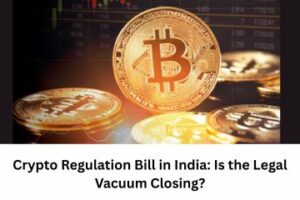Protection of Freedom of Speech and Expression in India
Written By: Kanishka Sharma
The Constitution of India provides the right of freedom, given in article 19 with the view of guaranteeing individual rights that were considered vital by the framers of the constitution. The right to freedom in Article 19 guarantees the Freedom of Speech and Expression, as one of its six freedoms. The philosophy behind this article lies in the Preamble of the Constitution, where a solemn resolve is made to secure to all of its citizens, liberty of thought and expression and this will subject to reasonable restrictions for certain purposes which being imposed under Article 19(2) of the constitution of India.
The main elements of the Right to freedom of speech and Expression are
- This right is available only to a citizen of India and not to foreign nationals
- The freedom of speech under Article 19 (1) (a) includes ones right to express their views and opinions at any issue through any of the medium such as film , movie, printing , writing etc .
- This right is not absolute and it allows the government to frame the laws to impose reasonable restrictions in the interest of the sovereignty and integrity of India , friendly relations with other countries , public order , morality and many more .
- The restriction on the freedom of speech of any citizen may be imposed as much as by an action of the state as by its inaction .
Cases depicting Freedom of speech and expression
Over the years the judicial view, wisdom, and judicial craftsmanship have opened the scope of freedom of speech and expression for example in the Freedom of the press which includes the right to propagate one’s view through print media or any other communication channel which subject to reasonable restriction under Article 19(2) as it was seen in the case of Romesh Thappar v. State of Madras AIR 1950 SC 124 in which it was decided by the supreme court freedom of the press as a part of freedom of speech and expression. Also in the case of Indian Express v. Union of India (1985), it was held that the press plays an important role in the democratic machinery.
Likewise, Freedom of Commercial speech with the case Tata Press Ltd. Vs. Mahanagar Telephone Nigam Ltd. The supreme court held that a commercial advertisement or commercial speech was also a part of freedom of speech and expression. Right to broadcast involves the progress of technology and includes all the available means of expression and communication which was proved in the case of Odyssey Communications (P) Ltd. v. Lokvidayan Sanghatana.
Restrictions imposed
Under Indian law, the freedom of speech and of the press does not confer an absolute right to express one’s thoughts freely. Clause (2) of Article 19 of the Indian constitution enables the legislature to impose certain restrictions on free speech under the following heads:
- security of the State –
- friendly relations with foreign States,
- public order,
- decency and morality,
- contempt of court,
- defamation,
- incitement to an offence, and
- sovereignty and integrity of India.
Reasonable restrictions on these grounds can be imposed only by a duly enacted law and not by executive action.
The freedom of speech and expression includes the privilege to express one’s feelings and sentiments unreserved by the method of word of mouth, composing or printing, etc. It includes the liberty to express or propagate one’s own views and to publish other’s views and it also includes freedom to hold opinions, to seek, receive and impart information and ideas.
Practical Constraints
Freedom of Speech and Expression, which enable an individual to participate in public activities. The phrase, freedom of the press has not been used in Article 19, though freedom activists, as well as most scholars and industrialized jurisdictions throughout the world, recognize that freedom of expression includes freedom of the press. Reasonable restrictions can be imposed in the interest of public order, security of State, decency, or morality. Hate speech laws in India are regularly abused by political organizations and other influential people. Although these cases rarely result in a conviction, it is used as a form of Intimidation which leads to widespread self – censorship by the people. Apart from hate speech laws, there are many other sections in the Indian Penal Code that curtail free speech. Books about history and religion are often targeted due to their very nature of promoting historical criticism.
Conclusion
Freedom of speech is one of the most important parts of democracy and it has been granted by the constituent assembly. The use of various social media platforms and other websites are there to send messages to the citizens and to give freedom of speech being used for various purposes. Freedom of speech and expression is used for the welfare of the citizens and also helps in the functioning of the state as all of them can communicate. So a careful and knowledgeable environment is very important for the freedom of speech and expression for creating a better society.
Previous Blogs
Corporate Criminal Liability in India
Examining The Role Of Diversity And Equality Management Systems In Educational Institutions In India




